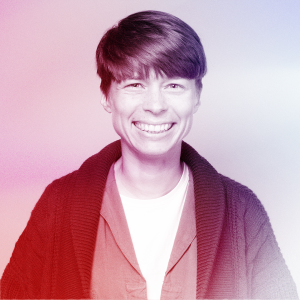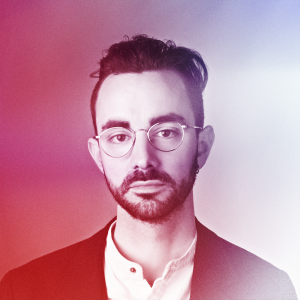Sparks of Innovation
"Sparks of Innovation" is the 2024 edition of Masterclasses, the special format of lectures dedicated to a wide community of students and practitioners.
Offered by the Specializing Master in Service Design of POLI.design – Politecnico di Milano, Service Design Masterclasses are online open events provided by renowned experts on cutting-edge topics debated in the service design community and other extra-disciplinary fields.
The Edition 2024 will start in February with five appointments involving innovation experts and service design practitioners, who will investigate cutting-edge topics connected to the service design world.
Masterclasses are delivered online via Cisco Webex and may also include hands-on interactive activities. The 2024 edition will see a renewed and broader participation option: updates soon!
Service Ecosystem Design
Josina Vink
Associate professor at Oslo School of Architecture & Design
Thursday, May 2
4:00 PM – 7:00 PM CEST

Abstract:
In this masterclass, participants will learn about a more systemic understanding of service design, called service ecosystem design. Service ecosystem design is a theory and practice that can support practitioners in intentionally shaping social structures to realize long-term change. Social structures are the shared norms, rules, roles, values, and beliefs that guide how we interact and live in society, but are generally taken for granted and invisible.
However, intentionally these structures can be powerful transformative forces for social system change. This masterclass will briefly present the theory around service ecosystem design supported by practice examples. Next by working collectively through a case example, participant will learn hands-on approaches for building awareness of social structures and purposefully altering these structures toward desired futures.
Key takeaways:
• An alternative, systemic understanding and theory on service design
• New methods for realizing long-term change in social systems
• Practical approaches for how to build an awareness of social structures within a given context
• Strategies for intentionally shaping social structures toward preferred futures
• Considerations for critically assessing the consequences of shaping social systems
The Organizational Context for Design
Marzia Aricò
Design Leader, Solopreneur
Wednesday, April 17
4:00 PM – 7:00 PM CEST

Abstract:
Understanding the organisational context within which design operates is fundamental to ensuring its outputs and
outcomes can achieve long-lasting impact. Too often, design and designers struggle to juggle organisational politics
and structures that seem to hinder all efforts. The result is disenfranchised teams, little impact, and general
frustration. In this masterclass, Marzia Aricò will explain the basic composing elements of modern corporations and
how designers can leverage this knowledge to achieve real, sustainable impact. Marzia will share reflections based on
15 years of working with large organisations globally and real examples from various sectors.
Key takeaways:
• Organisational structures;
• Organisational logics;
• Operating model for design;
• Strategies for design-driven impact;
• Leading through uncertainty.
Speculative and Critical Design at Work
Tobias Revell
Design Futures Lead at Arup Foresight
Thursday, March 28
4:00 PM – 7:00 PM CET

Abstract:
This session will introduce you to the core principles, tools and methods of Speculative and Critical Design in an applied context. Through the lens of tracers, projectors and exploits we will show how design can be used to reveal hidden or obscured tendencies and assumptions in designs, users and systems and provoke informed thinking on alternative futures. As well as introducing the concepts, the session will focus on where these techniques from critical design can be applied and the impacts and outcomes they can produce for design research, engagement and production.
Key takeaways:
• Key definitions and concepts of speculative and critical design.
• The role speculative and critical design might play in a design process.
• Understanding of three approaches to speculative and critical design: Tracing, projecting and exploits.
• Introduction to a range of canonical projects from speculative and critical design
• An understanding of the critical issues and conversations in speculative and critical design
• Examples of how to use speculative and critical design techniques to enhance outcomes in an applied context.
Afrikan Design Cultures: A catalyst for Service and Social Innovation
Ralitsa Diana Debrah
Design Educator & EdTech Practitioner
Friday, February 23
4:00 PM – 7:00 PM CET

Abstract:
In the heart of Afrikan design cultures lies a profound catalyst for transformative service and social innovation. This presentation explores the vibrant tapestry of creativity embedded in Afrikan traditions, weaving a narrative that extends beyond aesthetics to embrace the profound philosophy of Ubuntu. By delving into the genius of place, where cultural richness intertwines with human experiences, we will uncover the roots of innovation that have long been nurtured by diverse communities across the Afrikan continent. In this session, Case examples from Open Design Afrika (ODA) will be presented to showcase community-driven service innovations, providing insights and sparks of Afrikan innovation.
Ubuntu, the essence of shared humanity and interconnectedness, becomes the guiding light in our exploration of Afrikan design cultures. This presentation invites you on a journey through the stories of communities that have seamlessly blended tradition and modernity, giving rise to groundbreaking service innovations. The genius of place, as a source of inspiration and authenticity, amplifies the ingenuity fostered by Afrikan design cultures, sparking new ideas that resonate with the soul of the people.
Join us in unraveling the narrative threads of Afrikan design, where creativity meets community, and tradition fuels the flames of service and social innovation. Through this lens, we aim to illuminate not only the design aesthetics but also the profound impact of Afrikan cultures as a driving force for positive change in the world.
Key Takeaways:
Ubuntu as a Guiding Principle: Embrace the philosophy of Ubuntu as a foundational element for service and social innovation, fostering a sense of shared humanity and interconnectedness that transcends traditional boundaries.
Genius of Place in Design: Recognize the importance of the “genius of place” in Afrikan design cultures, understanding how the unique blend of cultural richness and human experiences contributes to the authenticity and inspiration for innovative solutions.
Cultural Fusion for Innovation: Explore the dynamic fusion of tradition and modernity within Afrikan communities, uncovering how this seamless integration sparks creativity and becomes a driving force behind groundbreaking service innovations.
Narrative-driven Innovation: Understand the power of storytelling in Afrikan design cultures and how narrative traditions contribute to the development of innovative services that resonate with the essence of the people.
Community-Centric Design: Learn how community-centered design principles, deeply rooted in Afrikan cultures, can lead to more meaningful and impactful service innovations that address the real needs and aspirations of the people.
Global Impact of Afrikan Design: Recognize the potential for Afrikan design cultures to influence and contribute to global conversations on innovation, emphasizing the importance of diverse perspectives in shaping a more inclusive and sustainable future
